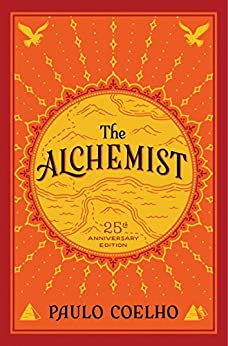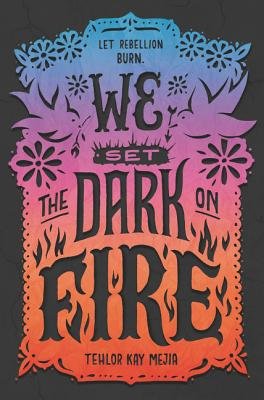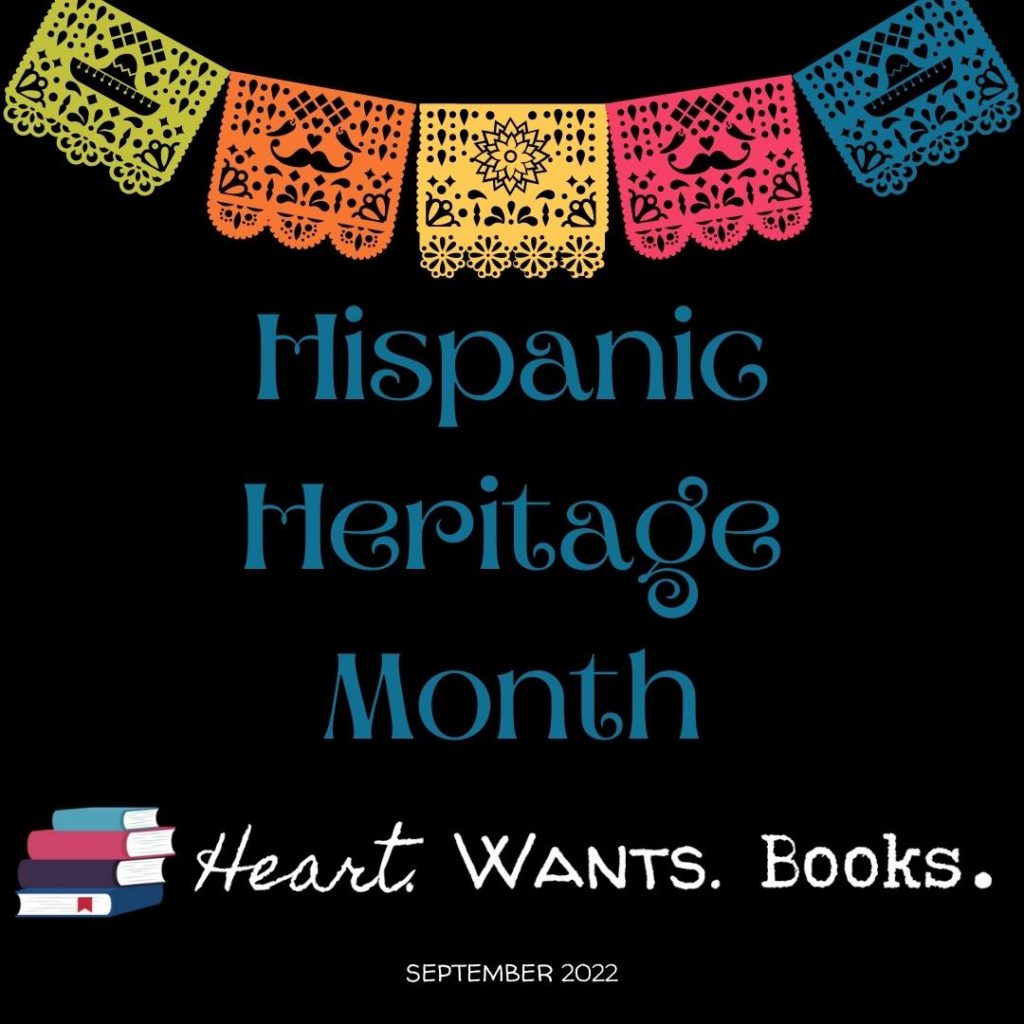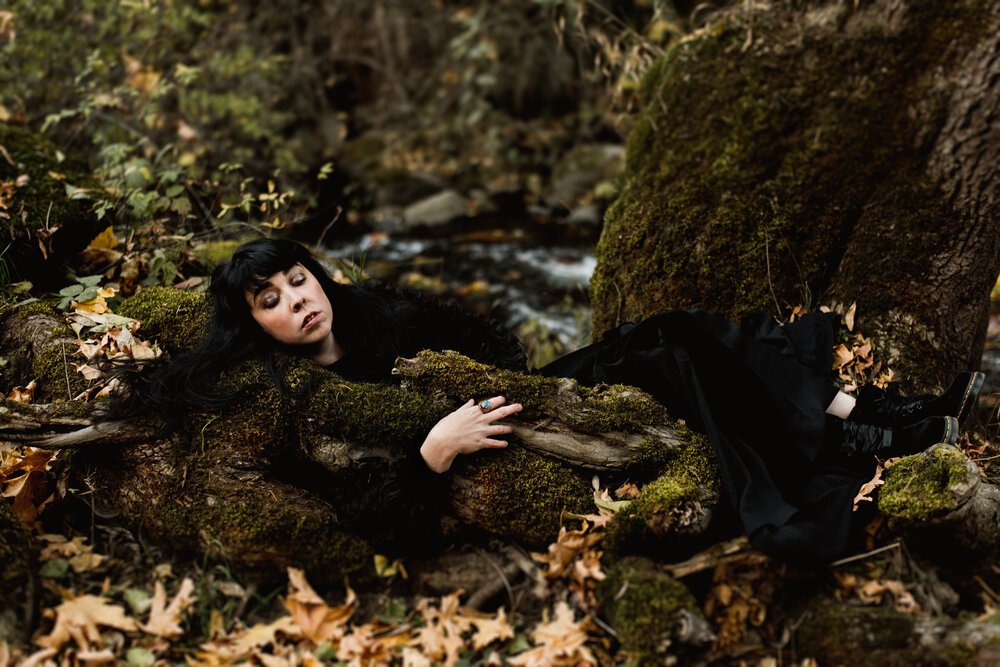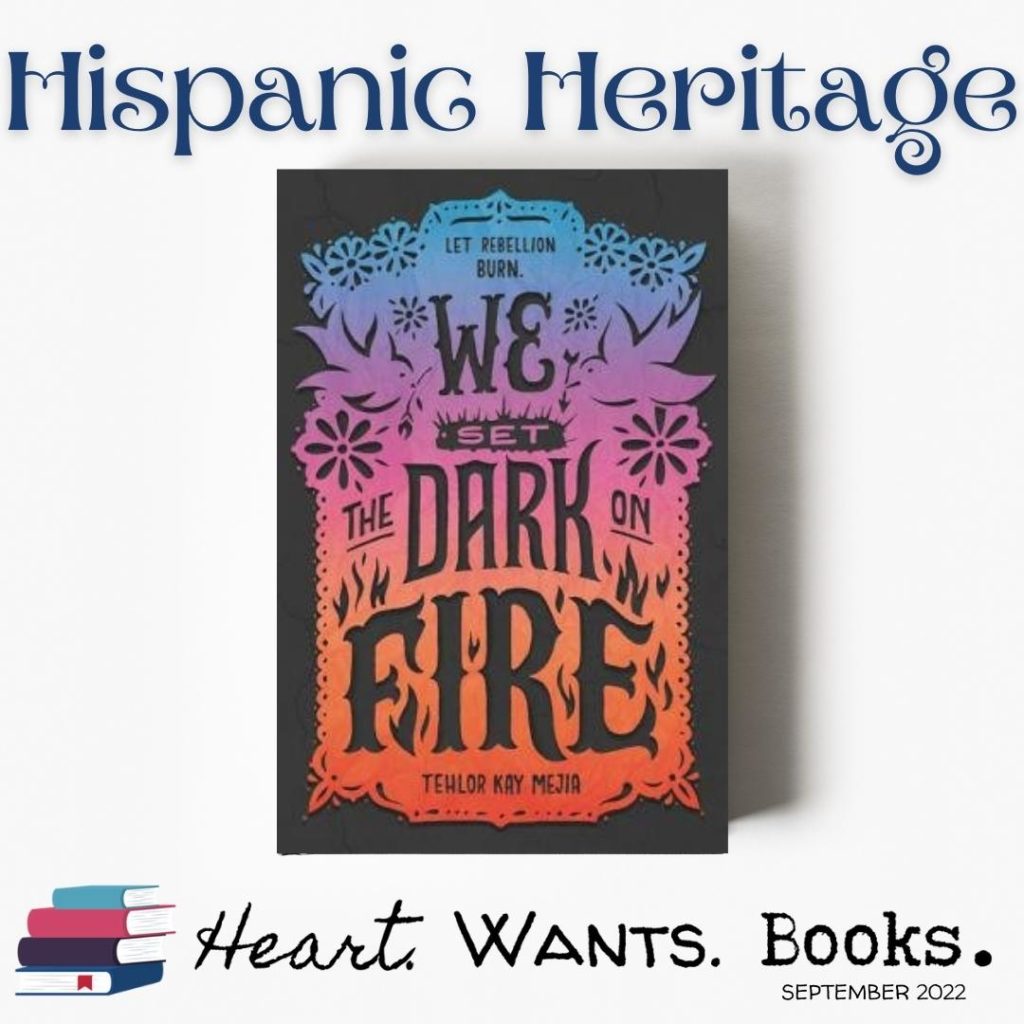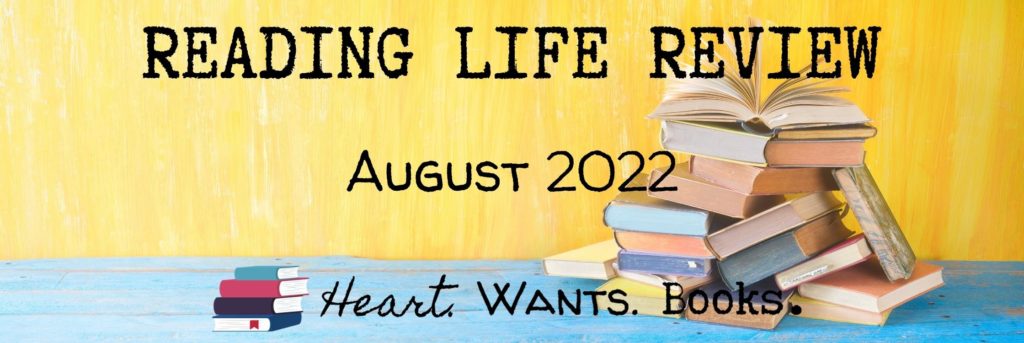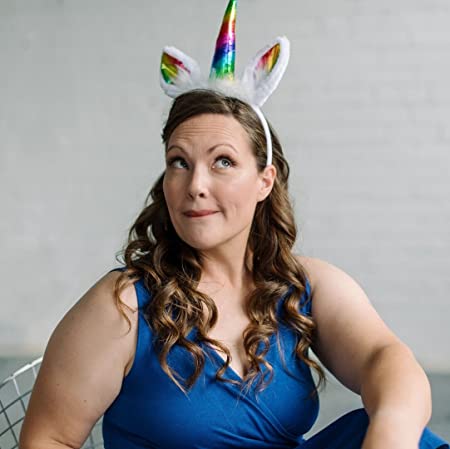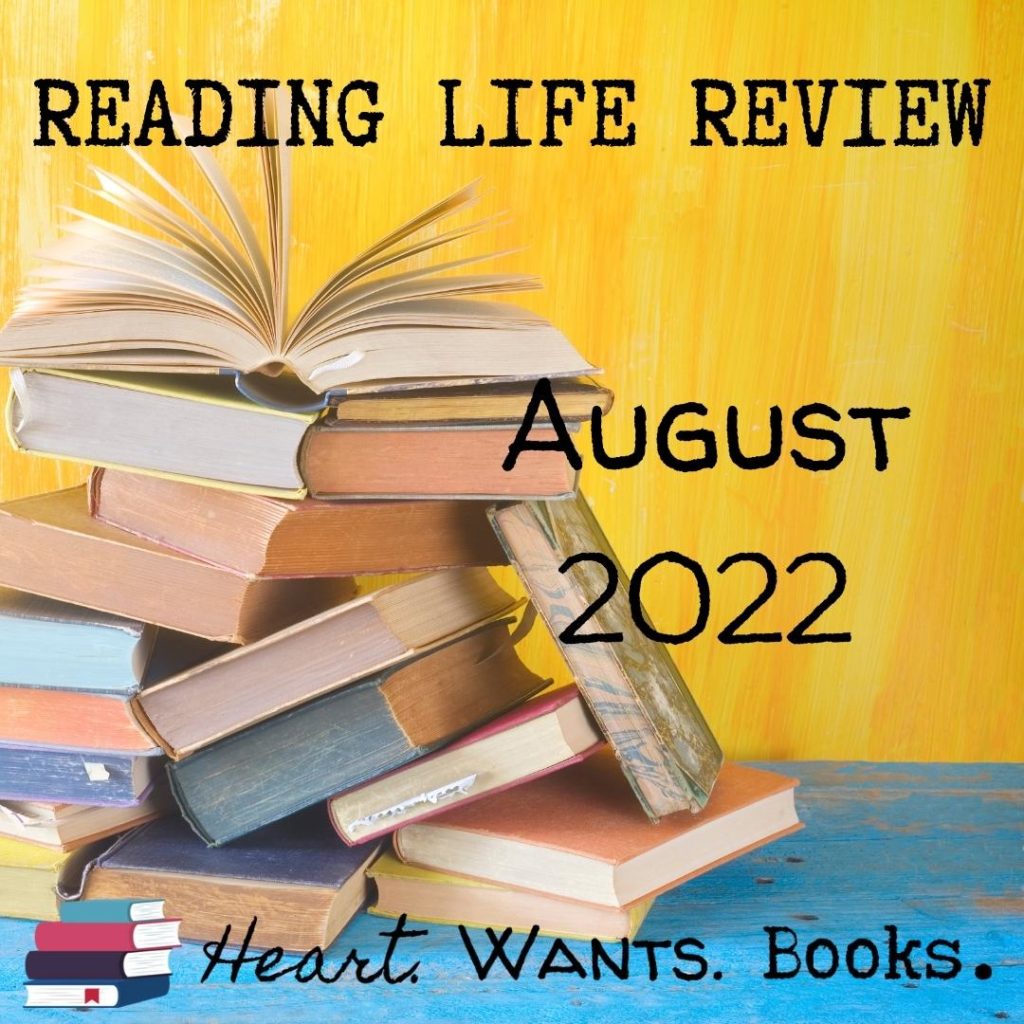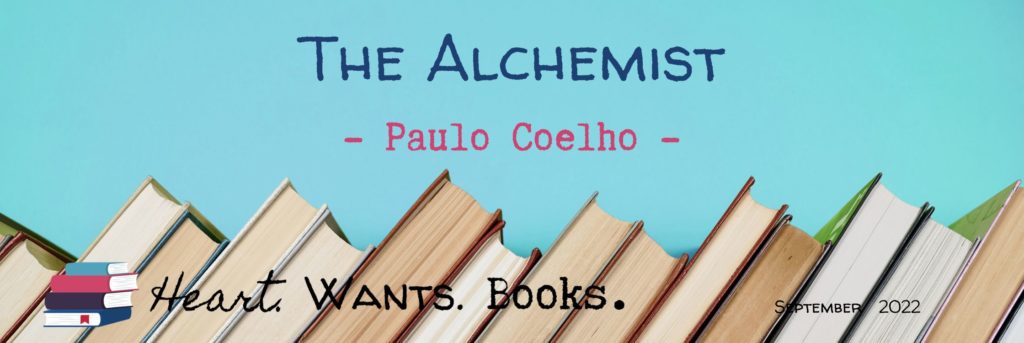
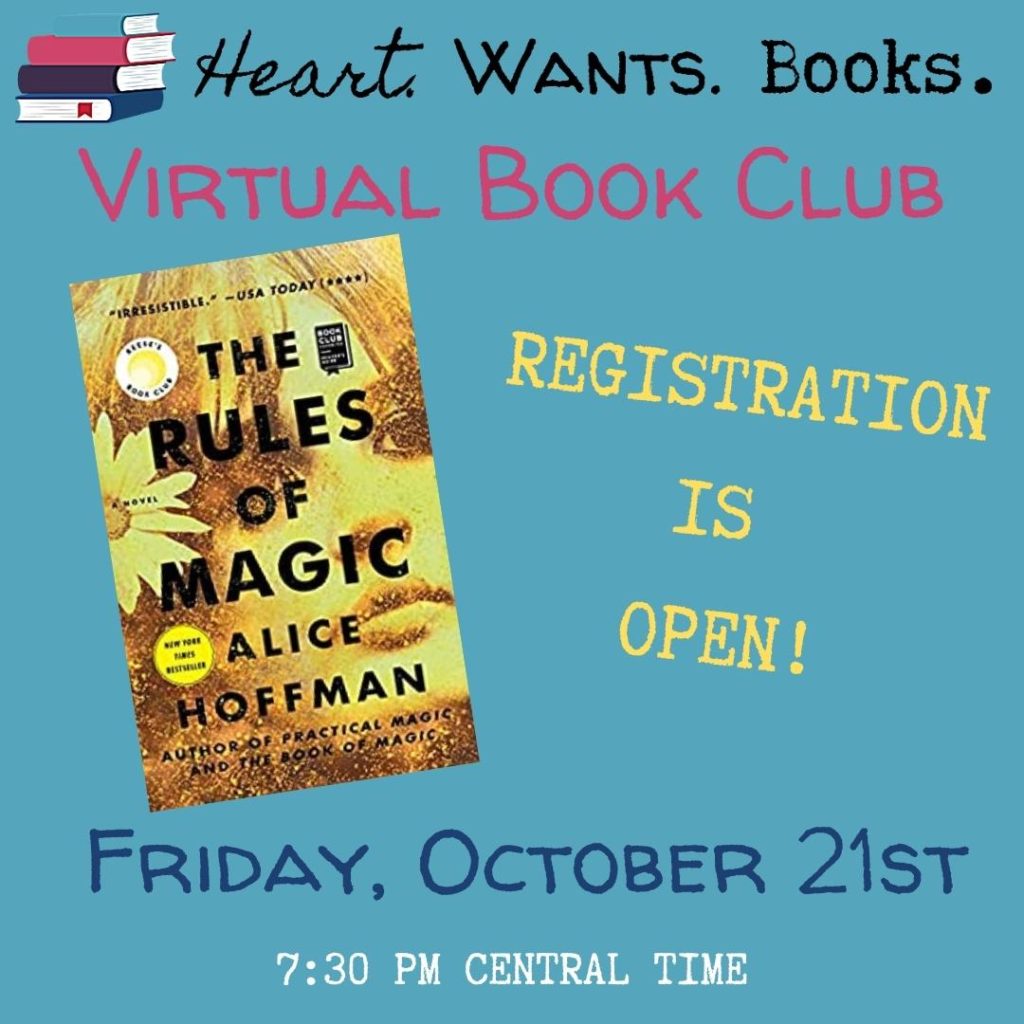
The following post includes affiliate links. More details here. As you’re doing your Amazon shopping, we’d be ever so grateful if you’d use our affiliate link to do so as it helps pay the bills around here!
Sometimes it’s a challenge to guess at what our readers, and ourselves, might enjoy reading and discussing for book club months in advance, but our darlings Sarah J. Maas and Deanna Raybourn always lend their work towards a great discussion, as do one of our favorite topics – witches. We have read several firsts of a series recently, and we are both delighted to get back to this series, even if we’re reading the prequel instead of the sequel. If you like working towards being a completist, then please sign up here to join us on Friday, October 21, 2022 at 7:30pm Central Time where we’ll discuss Alice Hoffman’s The Rules of Magic, that’s right, not Sally and Jillian, but their aunts!
Oh readers, let’s have a fable of our own as we discuss The Alchemist by Paulo Coelho. Here’s my fable, readers, classics are classics for a reason, but all of them don’t translate as well to modern times and perspectives as others. While Pride and Prejudice is an enemies to lovers romance, a story of the haves and the have mores, and a tale of misconceptions, The Alchemist is the story of the journey, determination, and patience it takes to pursue one’s “Personal Legend” and it reeks of privilege.
In The Alchemist, we have a shepherd who’s looking for his treasure. Antics happen, which have a very serious feel, and include a seer, a king, multiple thieves, a couple of desert crossings, and even a bit of a romance. My chief struggle with the book, which was much enhanced by Scar Jeremy Irons reading it to me, was the repeated point that the universe wants to help those who are working towards their Personal Legends. While that may be true, the obstacles faced by a shepherd who owns his own flock and travels around for food and simply because he can are very different from those faced by others with less financial means or more familial demands. The text is quite a sermon and only acknowledges those who don’t pursue their personal legend because they become too comfortable and simply stop. It doesn’t include those who struggle to feed and clothe their loved ones, or those who can’t just abandon or dispose of their responsibilities (as our shepherd in question does) in order to continue a perilous journey. Perhaps the unwritten truth is that the Personal Legend of any individual is automatically within their grasp, if only they whole-heartedly pursue it, and as such Personal Legends factor circumstances into account, but I’d prefer to see that spelled out on the page, rather than the very small number of examples include the shepherd, a fortune hunter, the alchemist, a shop owner, and a “woman of the desert,” whose personal legend is rather patriarchal.
All that said, I’m happy to have read The Alchemist, even happier I did it on audio (except for the last 30 pages, I must confess), and won’t should on any other readers to do the same. I’m giving it two stars, and admit the rating might be lower but for Irons’s performance because the text in and of itself was so serious and patronizing against those with responsibilities that preclude pursuing one’s Personal Legend. Perhaps our resident frequent reader of self improvement texts will have different thoughts and will open my eyes to the potential I missed in these pages.
What is a title that you’re glad you read, but don’t recommend to many others?
~Nikki
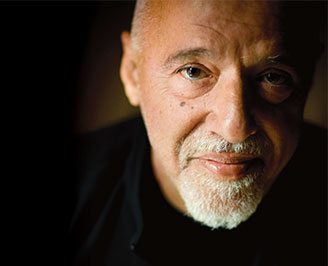
Before my rebuttal to Nikki’s opinion on The Alchemist, we need to discuss the Brazilian author, Paulo Coehlo. Not a born Hispanic himself (as Hispanic refers to a person who speaks Spanish, and Brazilians speak Portuguese), the protagonist of The Alchemist IS Hispanic as the boy Santiago is an Andalusian shepherd who journeys through Spain and Northern Africa to find his Personal Legend. (And, this is how an Enneagram 1 justifies the placement of this book within Hispanic Heritage month…) Coelho, like our protagonist, took multiple and often lucrative stops on his journey towards his Personal Legend of authorship, like being a renowned songwriter/lyricist with multiple Brazilian musicians, actor, journalist, and theatre director. The Alchemist, his first internationally bestselling novel known for being on the New York Times bestseller list for 427 consecutive weeks, was published shortly after his taking the pilgrimage of the Camino de Santiago in 1986. He lives in Geneva, Switzerland with his wife of 42 years, artist Christina Oiticica. Coelho’s over thirty published works can be found in 83 languages, 170 countries, and have sold over 320 million copies. It is easy to see that he would be considered one of the premier writers of our time with The Alchemist being his most well known work. It has been adapted into a graphic novel, a play, a symphony, and movie rights have been optioned.
As for Nikki’s opinion and review of the short, allegorical novel, it has so much merit. I can see how The Alchemist reeks of patriarchy and privilege. Santiago is a shepherd boy, a young man with little to no actual responsibility besides the sheep he tends and his own needs. And so, trying to put his ability to change his life almost immediately to go after his Personal Legend because of his ‘lack of responsibility’ onto others in a situation not similar to his seems reductive. I’m not attacking my book buddy or her opinion, just that this is Santiago’s story, not the story of a brown-skinned girl immigrating to the United States. Her Personal Legend is no less important to recount, but it’s not the story that is being told. It’s really important to note that though the story is technically a novel, there is so much more within the text. Like the concept of allowing a person to be who they are or who they want to be, not shoulding on them. Santiago doesn’t should on the crystal shop owner to take his pilgrimage to Mecca. And even the shop owner admits that he gets more joy out of imagining taking the pilgrimage than he would out of actually completing it. As for other Personal Legends, my sister would probably argue that her Personal Legend is the care and feeding of my niblings, everything else in her life is secondary. Another thing that The Alchemist doesn’t delve into is the ‘what happens next?’ aspect of finding your Personal Legend. Santiago finds his treasure but there is barely any implication as to if his Personal Legend is fulfilled or if because this FIRST Personal Legend was fulfilled that his heart would create for him a new desire to explore and accomplish. And, I think we as readers are allowed to assume that his understanding will grow to have other, new goals.
I think that the most important lesson to learn is that we each need dreams. Dreams can’t become goals until we put action behind them. Dreams on their own without action, can be just as important to forming who we are as the action steps of goal setting. Like the crystal merchant we can dream, but only those who are goal-focused and almost selfishly determined can accomplish their Personal Legends. I first listened to The Alchemist on audio, which is why I recommended the Jeremy Irons narrated book to Nikki, and this short re-read solidified the knowledge that as long as I keep pushing towards my GOALS by taking actionable steps, the universe will continually help me to succeed in them. I’m giving The Alchemist 5 stars, and I think it’s a fabulous gift for a young graduate just starting out in their life journey. But, maybe that’s because that’s around the time that I listened to this timeless fable the first time.
~Ashley
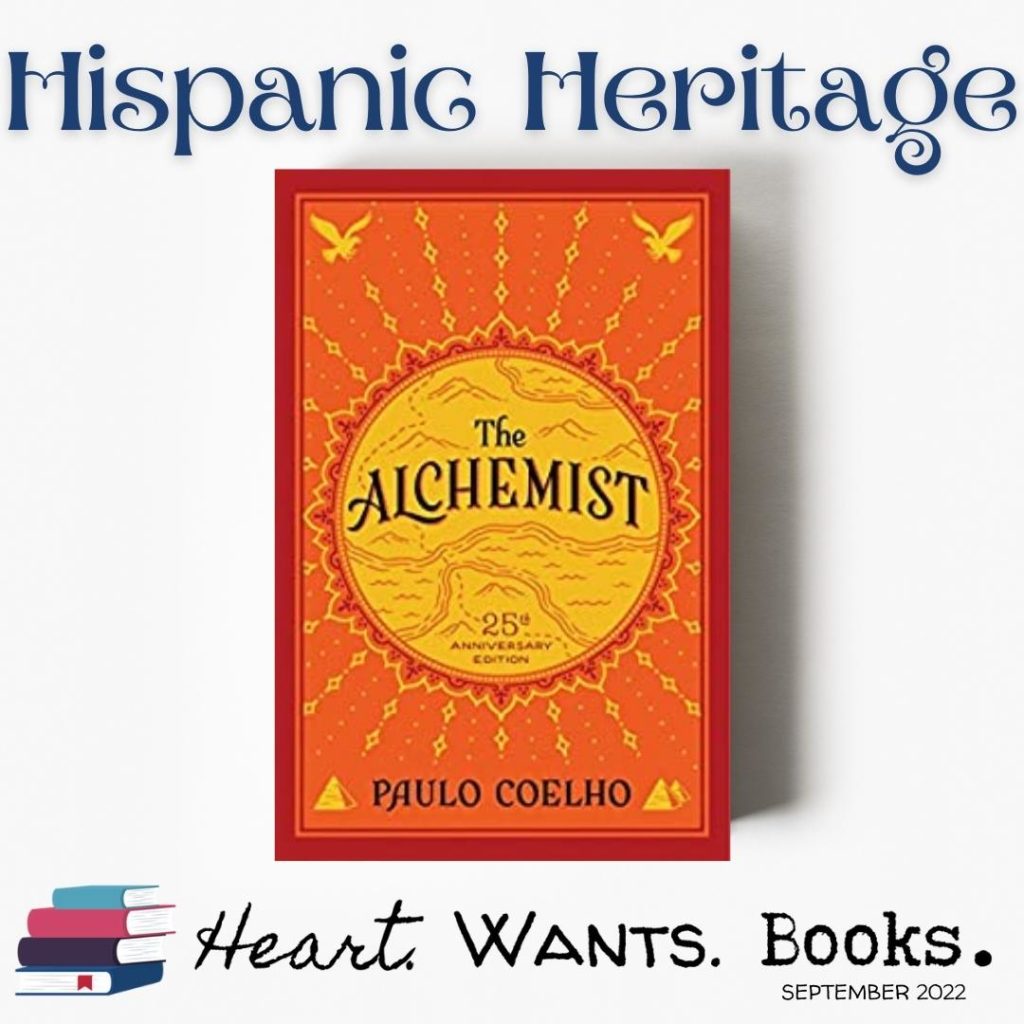
PLEASE SUPPORT US WHEN YOU SHOP BY FIRST CLICKING ON THE IMAGES BELOW:

